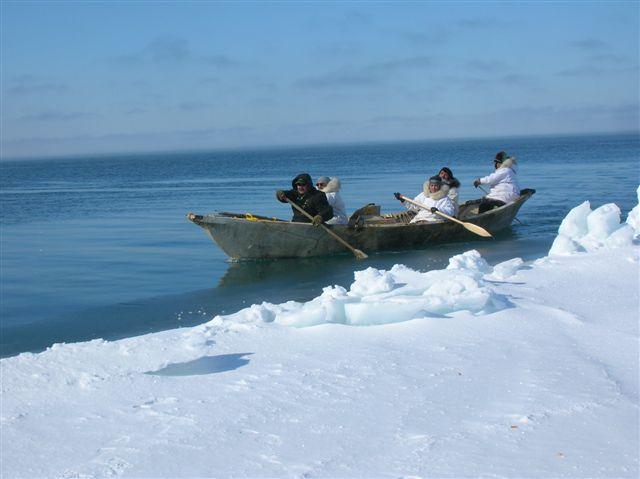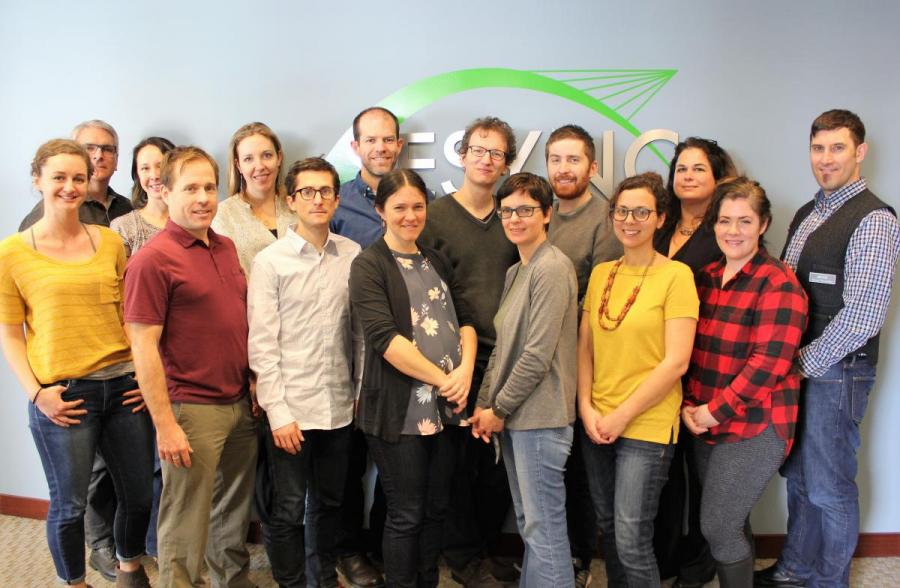
Every spring, many indigenous Alaskans go out on the ice to hunt for whales, seals, and Pacific walrus. But in recent years, shrinking Arctic sea ice has threatened the livelihoods of communities who depend on these species as a source of food and income. Tribal elders witnessing these changes have started sharing stories and observations of animal migratory routes so that their knowledge can be passed on to future generations.
The Bering Sea Elders Group, an association of elders appointed by 39 Tribes in the Yukon-Kuskokwim and Bering Strait regions, convened a workshop that brought together elders and experts from 18 different tribes to share their stories and experiences of hunting and fishing in Alaska. The Exchange for Local Observations and Knowledge of the Arctic (ELOKA) project has been publishing the products of these collaborations online, including maps of the migratory patterns of different species. The mission of ELOKA is to “facilitate the collection, preservation, exchange, and use of local observations and knowledge of the Arctic.”
“There’s a willingness of Arctic communities to share their stories with researchers and the public, which researchers who work in that region note is somewhat surprising,” said Dr. Kristal Jones, Assistant Research Scientist at the National Socio-Environmental Synthesis Center, who convened a workshop at SESYNC last week to discuss this kind of data sharing.
The Workshop, titled Accelerating Synthesis for Sustainability and Conservation through Qualitative Data Sharing, was co-convened by Dr. Jones and Dr. Steven Alexander, a Postdoctoral Research Fellow at SESYNC. They brought together a team of international scientists from universities, non-profit organizations, and government agencies, including Dr. Colleen Strawhacker, a social sciences data management expert from the National Snow and Ice Data Center.
Unfortunately, there isn’t always open sharing of information between researchers. Qualitative researchers can sometimes be skeptical of sharing interviews and oral histories because other people could misinterpret the comments, when taken outside of a cultural context. Similarly, individuals who share their stores can be hesitant to have those stories shared without knowing how they will be used in the future. And other times, researchers are reluctant to freely share data for fear of being scooped.
“Data can die at the end of a project, but it can also be preserved, curated, and reused for someone who might use it to ask a different question or perhaps compare across multiple cases,” said Dr. Steven Alexander. “Our research team is looking into ways we can ethically share data with different networks so that we can use it in socio-environmental research projects.”
The ELOKA project’s website expresses a need for a data-sharing network:
Without a network and data management system to support [local and traditional knowledge] and community-based research, a number of problems have arisen, such as misplacement or loss of extremely precious data from Elders who have passed away, lack of awareness of previous studies causing repetition of research and wasted resources occurring in the same communities, and a reluctance or inability to initiate or maintain community-based research without an available data management system.
Participants of the Workshop (pictured below) will develop best practices for managing and sharing qualitative data for use and re-use in socio-environmental research, so that research on some of the world’s most pressing environmental problems can take advantage of these important observations and stories.

Learn more about this research on the Qualitative Data Sharing Workshop page.